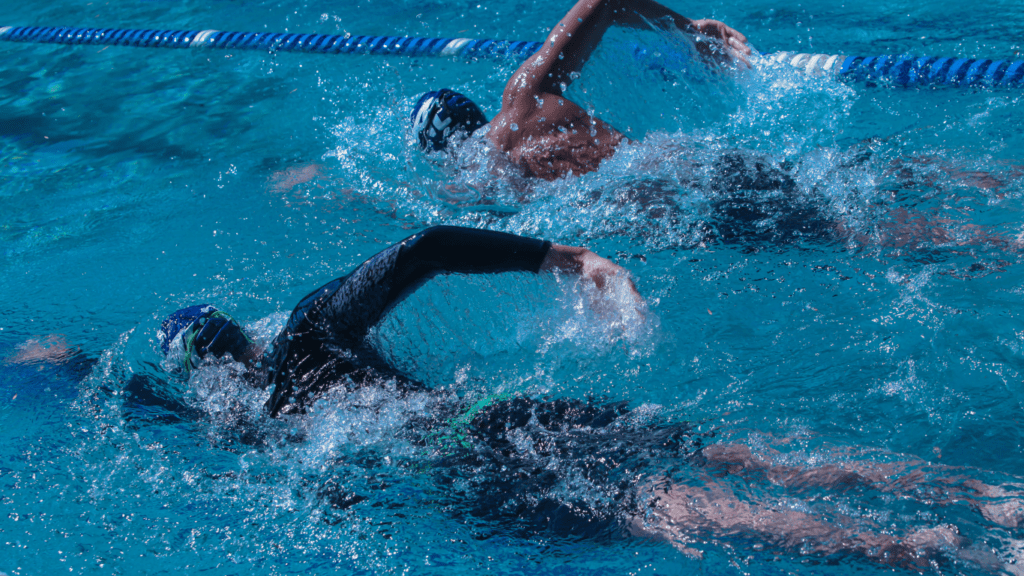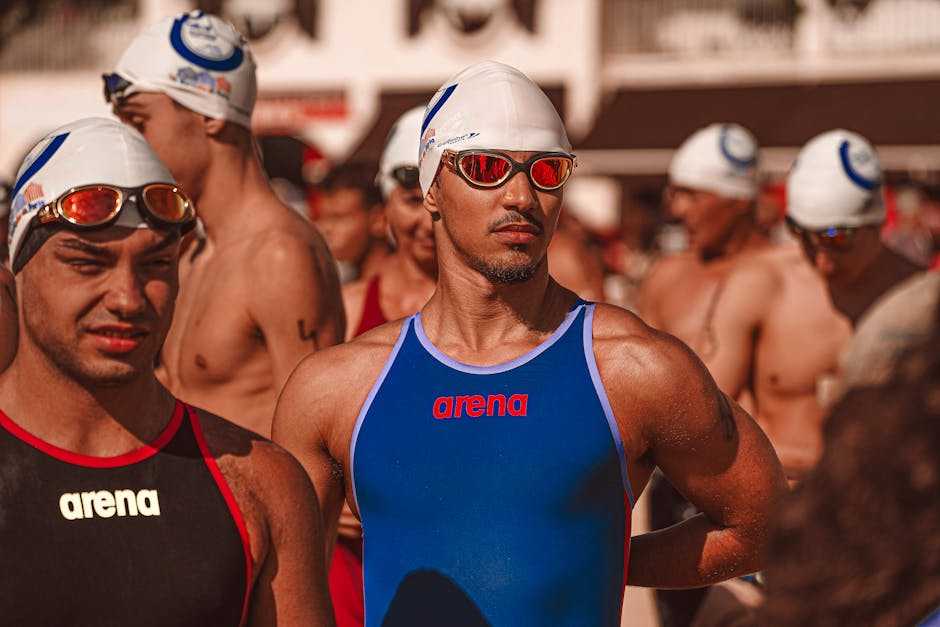As a competitive swimmer, optimizing your performance is crucial. One key strategy that can give you an edge in the pool is carbohydrate loading. Fueling your body with the right nutrients is essential for peak athletic output, and carbohydrates play a vital role in providing the energy your muscles need to propel you through the water with speed and efficiency.
In this article, I’ll delve into the benefits of carbohydrate loading specifically tailored for competitive swimmers. By understanding how to strategically increase your carbohydrate intake leading up to a race or intense training session, you can enhance your endurance, maintain optimal energy levels, and improve overall performance in the water. Let’s explore the science behind carbohydrate loading and how you can effectively implement this nutritional strategy to swim faster and stronger.
What Is Carbohydrate Loading?
Carbohydrate loading, also known as glycogen supercompensation, is a strategic nutritional approach aimed at maximizing the body’s glycogen stores. It involves increasing carbohydrate intake in the days leading up to a competition or intense training session. This process allows swimmers to enhance their endurance and performance by ensuring that their muscles have an ample supply of glycogen – the primary fuel source during high-intensity physical activities.
The Science Behind Carbohydrate Loading
Carbohydrate loading works on the principle that glycogen stores in the muscles and liver play a vital role in sustaining prolonged exercise. By consuming a high-carbohydrate diet combined with tapering exercise intensity, swimmers can increase their glycogen stores beyond normal levels. This process involves two main steps: glycogen depletion through intense training followed by carbohydrate loading to maximize storage. The increased glycogen availability delays fatigue, improves endurance, and helps swimmers maintain performance during extended swimming sessions.
How It Can Benefit Swimmers
Carbohydrate loading offers several benefits to competitive swimmers. By optimizing glycogen stores, swimmers can potentially delay the onset of fatigue and maintain higher energy levels during races. This nutritional strategy is particularly useful for endurance events where sustained performance is essential. Additionally, carbohydrate loading can enhance overall performance by ensuring that swimmers have the necessary fuel to power through intense workouts and competitions, ultimately leading to improved results in the pool.
How to Implement Carbohydrate Loading

Carbohydrate loading, also known as glycogen supercompensation, is vital for competitive swimmers to optimize their performance. By strategically increasing carbohydrate intake before competitions or intense training, swimmers can maximize their glycogen stores, leading to enhanced endurance and sustained performance. Implementing carbohydrate loading involves focusing on the timing of carbohydrate intake and selecting the right types of carbohydrates to consume.
Timing of Carbohydrate Intake
When implementing carbohydrate loading, it’s essential to time carbohydrate intake effectively to ensure maximum glycogen storage. A common strategy is to increase carbohydrate consumption starting around 3-4 days before the event, with a focus on consuming more carbohydrates during this period. By front-loading carbohydrates in the days leading up to the competition, swimmers can enhance their glycogen reserves, providing a crucial energy source during the race.
Types of Carbohydrates to Consume
Choosing the right types of carbohydrates is key to successful carbohydrate loading for competitive swimmers. Opt for complex carbohydrates like whole grains, fruits, vegetables, and legumes as they provide a sustained release of energy. Foods rich in simple sugars can also be beneficial for quick energy boosts before or during races. Balancing these two types of carbohydrates in the diet can help maintain energy levels throughout the competition while ensuring optimal glycogen storage.
By effectively timing carbohydrate intake and selecting a variety of carbohydrates in the diet, swimmers can successfully implement carbohydrate loading to enhance their endurance, delay fatigue onset, and improve overall performance in competitive swimming events.
Carbohydrate Loading Strategies for Competitive Swimmers
When it comes to carbohydrate loading strategies for competitive swimmers, proper planning is key to maximizing performance. Here’s how swimmers can optimize their carbohydrate intake for pre-competition preparation and fueling during competitions:
Pre-Competition Carb Loading
Before a significant swimming event, I focus on increasing my carbohydrate intake to ensure my glycogen stores are fully stocked. This involves consuming a diet rich in complex carbohydrates like whole grains, fruits, and vegetables. By gradually increasing my carbohydrate intake leading up to the event, I can top off my glycogen stores and ensure I have sustained energy reserves for the competition.
During Competition Fueling
During a competition, I strategically fuel my body with easily digestible carbohydrates to maintain my energy levels. I rely on quick sources of energy such as energy gels, sports drinks, and bananas to replenish glycogen stores and provide the necessary fuel for optimal performance. By incorporating these fueling strategies during competitions, I can sustain my energy levels, delay fatigue, and perform at my best throughout the event.
Potential Risks and How to Mitigate Them
When it comes to carbohydrate loading for competitive swimmers, there are certain risks that need to be considered to ensure optimal performance. Here are some potential risks and tips on how to mitigate them:
Common Mistakes in Carb Loading
- Overconsumption: Consuming too many carbohydrates can lead to bloating, gastrointestinal distress, and even weight gain. It’s essential to calculate the right amount of carbohydrates based on individual needs and not go overboard.
- Neglecting Protein and Fat: Focusing solely on carbohydrates without considering the intake of protein and healthy fats can result in an imbalanced diet. Protein is crucial for muscle repair and growth, while fats provide long-lasting energy. A well-rounded diet is key to overall health and performance.
- Timing Errors: Carbohydrate loading should be done gradually leading up to a competition. Waiting until the last minute to load up on carbs can cause digestive issues and may not effectively replenish glycogen stores. Planning ahead and spreading out carbohydrate intake is a more effective strategy.
- Ignoring Hydration: Hydration is often overlooked during carbohydrate loading. Dehydration can hinder performance and impact glycogen utilization. Swimmers should ensure they are adequately hydrated before, during, and after the loading phase.
- Consult a Professional: When implementing carbohydrate loading strategies, especially for the first time, consulting with a sports nutritionist or dietitian can provide personalized guidance based on individual needs and training intensity.
- Practice During Training: Practice carbohydrate loading during training sessions to understand how your body reacts to specific foods and timing. This will help identify any issues or discomfort before competition day.
- Choose Quality Carbohydrates: Opt for whole grains, fruits, vegetables, and legumes as primary carbohydrate sources. These foods provide essential nutrients along with carbohydrates, promoting overall health and performance.
- Monitor For Sensitivities: Some athletes may have sensitivities to certain types of carbohydrates. Pay attention to how your body responds to different foods to avoid digestive issues or discomfort during crucial events.
By being mindful of these common mistakes and following these tips, swimmers can maximize the benefits of carbohydrate loading while minimizing potential risks, ultimately enhancing their performance in competitive swimming events.


 is a passionate advocate for fitness and healthy living, blending her expertise in swimming with a dedication to overall wellness. With years of experience both in and out of the pool, she offers valuable insights on effective workout routines, nutrition, and lifestyle habits that support peak performance and vitality. Rosamie’s writing is characterized by its practical advice, encouraging readers to adopt sustainable habits for long-term health and fitness. She frequently shares her personal journey and success stories to motivate others, and her articles often include actionable tips that readers can easily incorporate into their daily lives. By focusing on a holistic approach to fitness, Rosamie aims to help individuals not only achieve their athletic goals but also cultivate a balanced and fulfilling lifestyle.
is a passionate advocate for fitness and healthy living, blending her expertise in swimming with a dedication to overall wellness. With years of experience both in and out of the pool, she offers valuable insights on effective workout routines, nutrition, and lifestyle habits that support peak performance and vitality. Rosamie’s writing is characterized by its practical advice, encouraging readers to adopt sustainable habits for long-term health and fitness. She frequently shares her personal journey and success stories to motivate others, and her articles often include actionable tips that readers can easily incorporate into their daily lives. By focusing on a holistic approach to fitness, Rosamie aims to help individuals not only achieve their athletic goals but also cultivate a balanced and fulfilling lifestyle.
